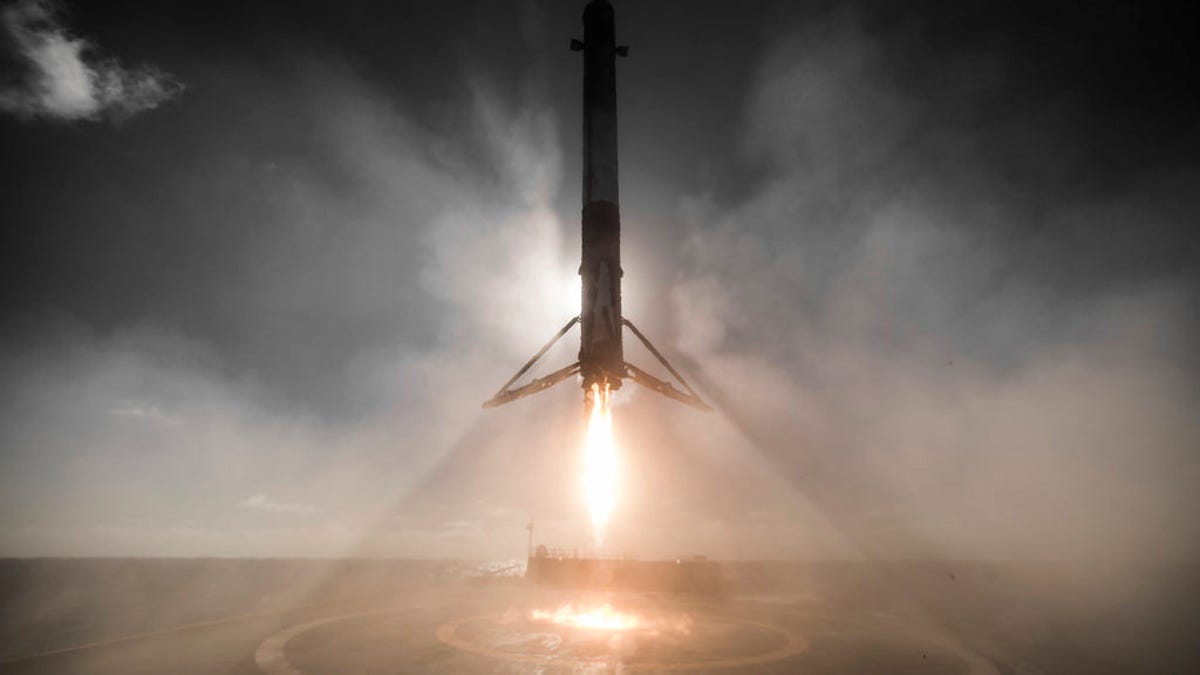SpaceX wants to launch a rocket every two to three weeks
Despite September's dramatic explosion, Elon Musk's space venture appears to be back on track.

SpaceX is ready to pick up the pace of Falcon 9 launches.
In September, a Falcon 9 rocket exploded, and SpaceX was grounded for four months. It was only last month that SpaceX returned to flight, nailed the landing and created a stunning photo in the process.
With that success under its belt, SpaceX won't be tiptoeing around. On Monday, the company told Reuters it'll launch a rocket every two to three weeks from now on.
As Reuters points out, SpaceX was already close to launching rockets that quickly, before the $200 million satellite-busting explosion in September. The company successfully launched eight times last year, and there's a handy Wikipedia page where you can read about each one.
Mind you, the new two-to-three-week schedule depends on when SpaceX finishes work on a new launch pad at NASA's Kennedy Space Center in Florida, since the original one at nearby Cape Canaveral was damaged in the September blast.
SpaceX is scheduled to finish the new pad next week, according to Reuters.
So where, then, did SpaceX launch the successful rocket last month? California's Vandenburg Air Force Base.
By the way: though SpaceX and Tesla founder Elon Musk has taken some flak for joining President Donald Trump's economic forum, both SpaceX and Tesla were among the tech companies that signed a legal brief against Trump's controversial "muslim ban."
Tech Enabled: CNET chronicles tech's role in providing new kinds of accessibility.
Technically Literate: Original works of short fiction with unique perspectives on tech, exclusively on CNET.

